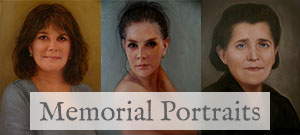
I started going grey when I was barely out of my teens. I remember sitting in the noisy, overcrowded medina in Tangiers when I was 21, drinking Moroccan mint tea, suntanned and perfectly content. My companion leaned over and said, ‘I really like your grey hair, it suits you.’ Back then, it felt like a real compliment, with no shadowy areas, no undercurrents of regret or shame. It felt as though I had some amazing talent that marked me out from everyone else, like juggling fireballs or touching the tip of my nose with my tongue.
When I hit my early thirties, I fell pregnant and wouldn’t have dreamed of colouring my hair, exposing my developing baby to chemicals and carcinogens. Yes, I was that type of mother-to-be. I ate organic, practiced daily yoga, took long beach walks and vigorous dips in the icy late June sea. But after I gave birth, I looked in the mirror one day, balancing my new daughter on my hip. We were playing that game; the peek-a-boo baby game of burgeoning consciousness. Am I here? Am I not? Who am I, anyway?
As I focused in the mirror on my own face, I realised that I was going grey. Really grey, from the crown of my head to my temples. The back part of my long hair was still the deep brown I associated with my former self. The rest was somebody else entirely. I tried henna then, remembering my backpacking days fondly, when a trip to the local bathhouse meant a vigorous, muscular-thighed Berber woman pinning me down and applying the thick paste to my head, followed by a rousing massage and intricate henna designs painted on feet and hands. But the henna experiment was interesting, at best. I didn’t want to be a redhead. And it didn’t cover the stubborn hairs that framed my face like a halo.
So I went to the local hairdresser and started paying to colour my hair. At first, it was every couple of months, and the re-growth didn’t bother me unduly; little curls of silver and ash after a few weeks. But as I entered into my late thirties and early forties, the routine I’d once looked forward to as a much-deserved pampering, a respite from everyday life, became a straightjacket. It took hours out of my work time, and cost hundreds of dollars. The chemicals gave me a headache, and ratcheted up my sinuses like cocaine. From every few months it became every four weeks. Sometimes three. Then I knew I was hooked. Hooked on the image I still held onto as youthful, strong, never-changing. Even through my melanoma diagnosis, I kept going to the hairdresser, but we switched to a more natural, less noxious dye. When my sister died of cancer, I coloured my hair the day before her funeral – my hairdresser opened the shop just for me. And we sat in front of the mirror: she painting my hairline with the fine brush, both of us shedding ammonia-laced tears.
My maternal grandfather went white overnight after the shock of his first wife dying in childbirth. My father went grey at the age of thirty. So I know that no amount of turmeric, green tea, meditation, mineral supplements, herbs and chlorella shots will alter this aspect of my combined genetic destiny. I also have an autoimmune disease and one of the symptoms is – you guessed it – premature greying. After a session at the hairdresser, I’d always felt lighter, somehow more alive. Healthier, even. But within a week or so, the familiar hair began growing back, and it was just as if I hadn’t been at all.
What does it mean to be grey for a woman? In our culture, it generally means old, useless, given up. For men, the old clichés still hold water; distinguished, suave, sexy, a silver fox. What does it mean for me now to embrace the in-between stage, the part-grey and part every other colour from blonde to russet to brown? It’s one thing to be in your sixties and sport a full, glossy head of silvery hair, perfectly groomed. It’s another to be 42 and exhibit the ultimate marker of age.
So why have I suddenly decided to stop hiding my grey hair? I’m sick of the tyranny of subterfuge. I need to accept the totality of who I am in this moment. Not who I once was, and not who I will be. It would be much easier to go grey in ten or fifteen years, I admit that. Right now, it’s an act of subversion, most of all toward myself and the flawed concepts I once held dear.
My daughter and I were walking the dog a few evenings ago; one of those still, scented spring nights Sydney does so well. In the half-light, we greeted our next door neighbour as she was getting out of her car. She’s a woman in her sixties, we’ve recently moved in, so we don’t know her well.
‘Oh!’ she said, peering closely at me. ‘I didn’t recognise you! Have you gone blonde?’
‘No,’ I replied. ‘I’ve decided to stop dyeing my grey hair.’
‘Well, you’re brave,’ she said, and we both giggled, awkwardly.
As my daughter and I entered our garden, I looked down at her and smiled.
Brave, maybe. But in a better world, I wouldn’t have to be.




Bravo